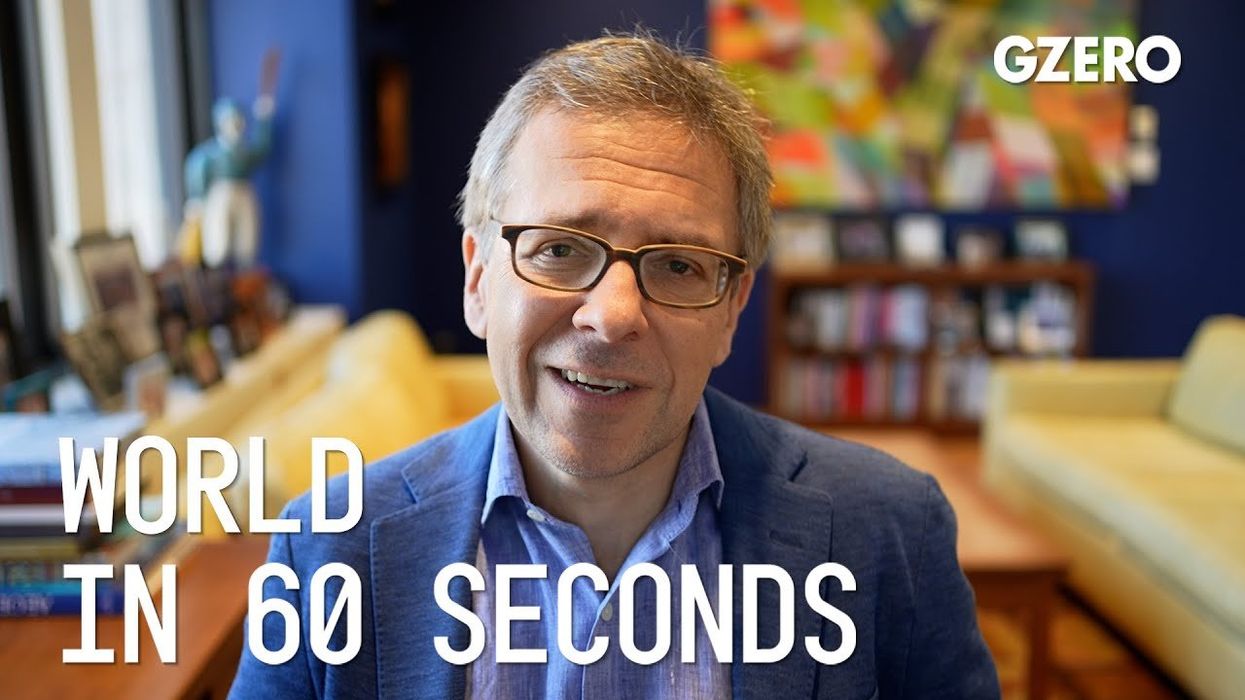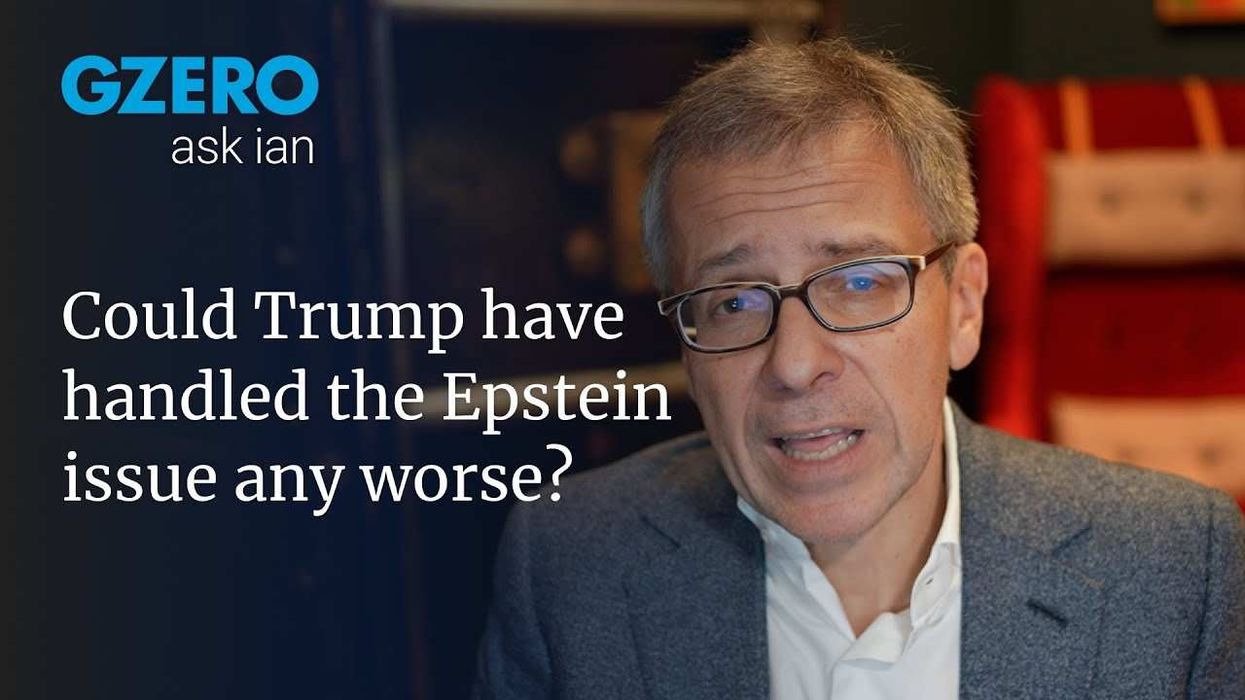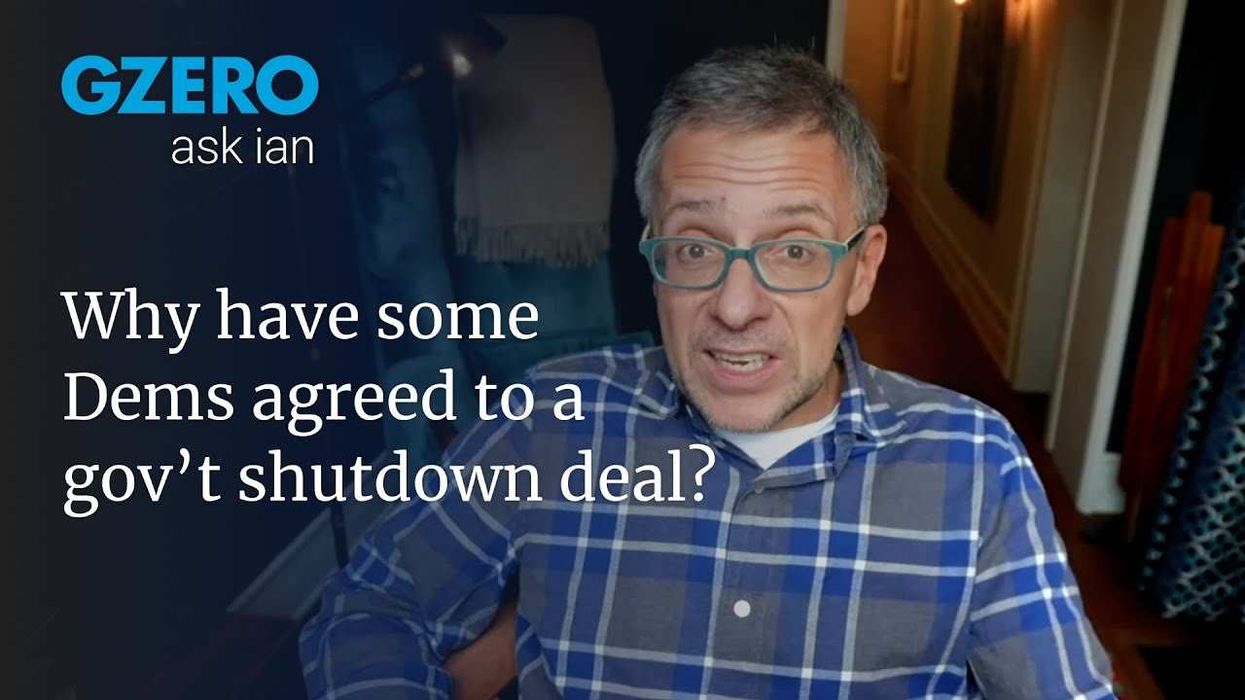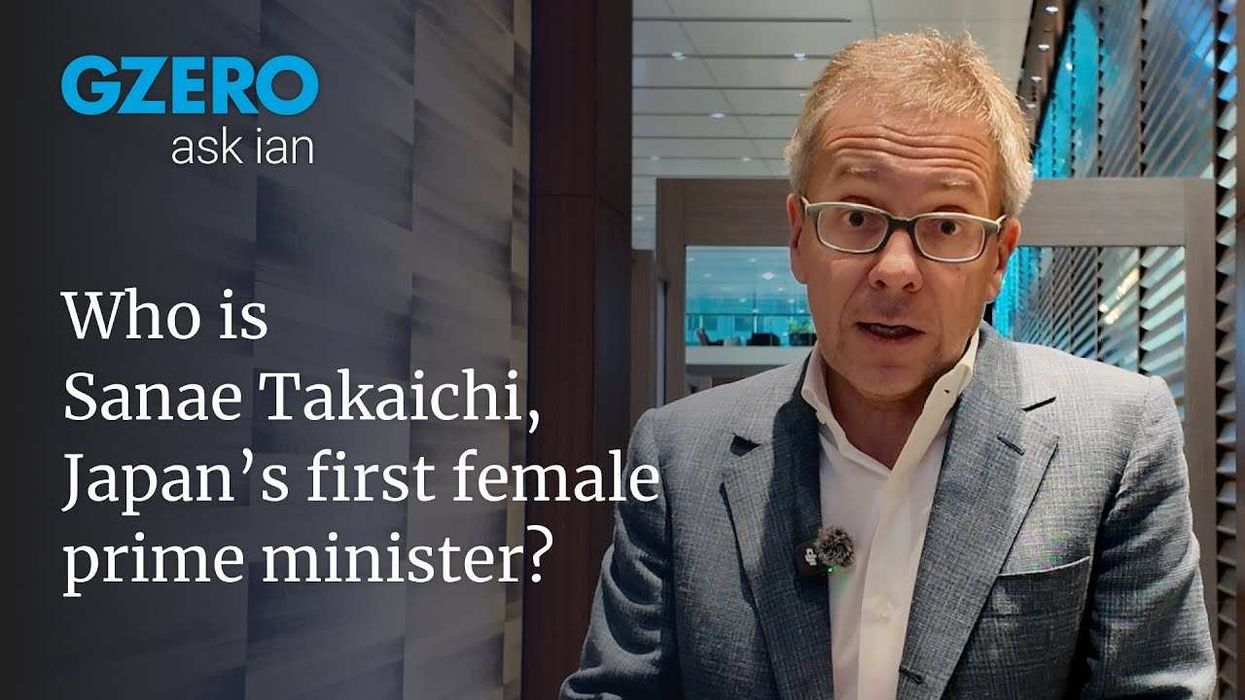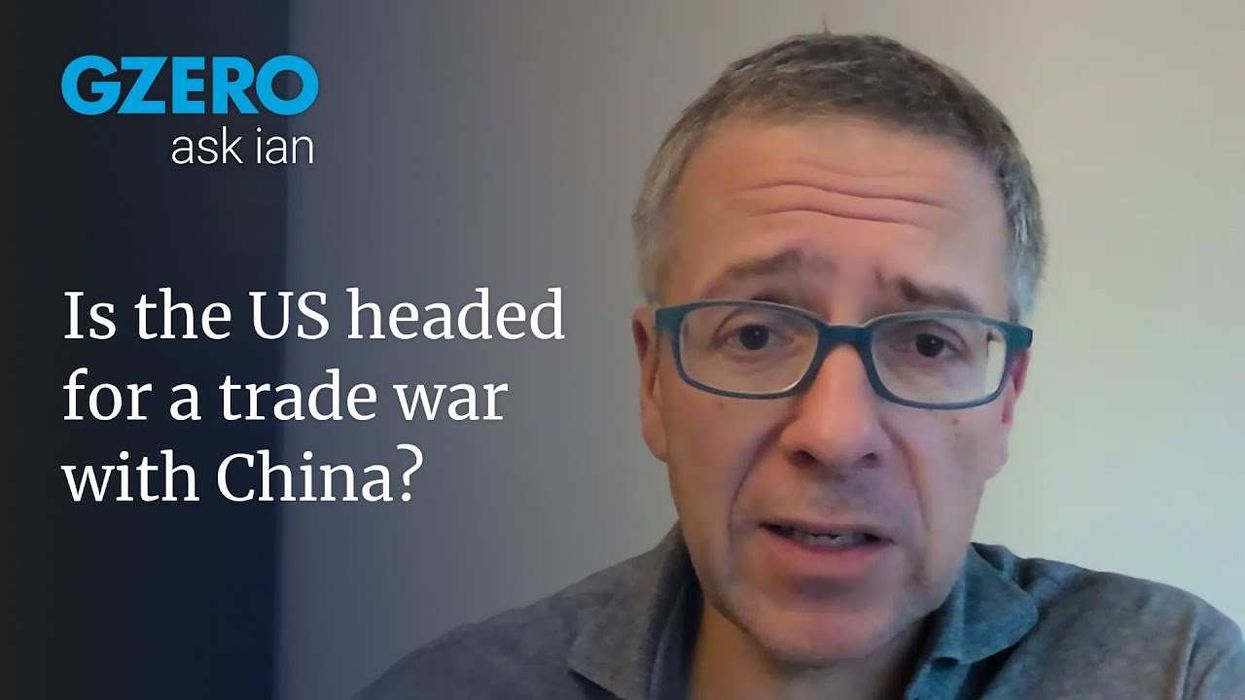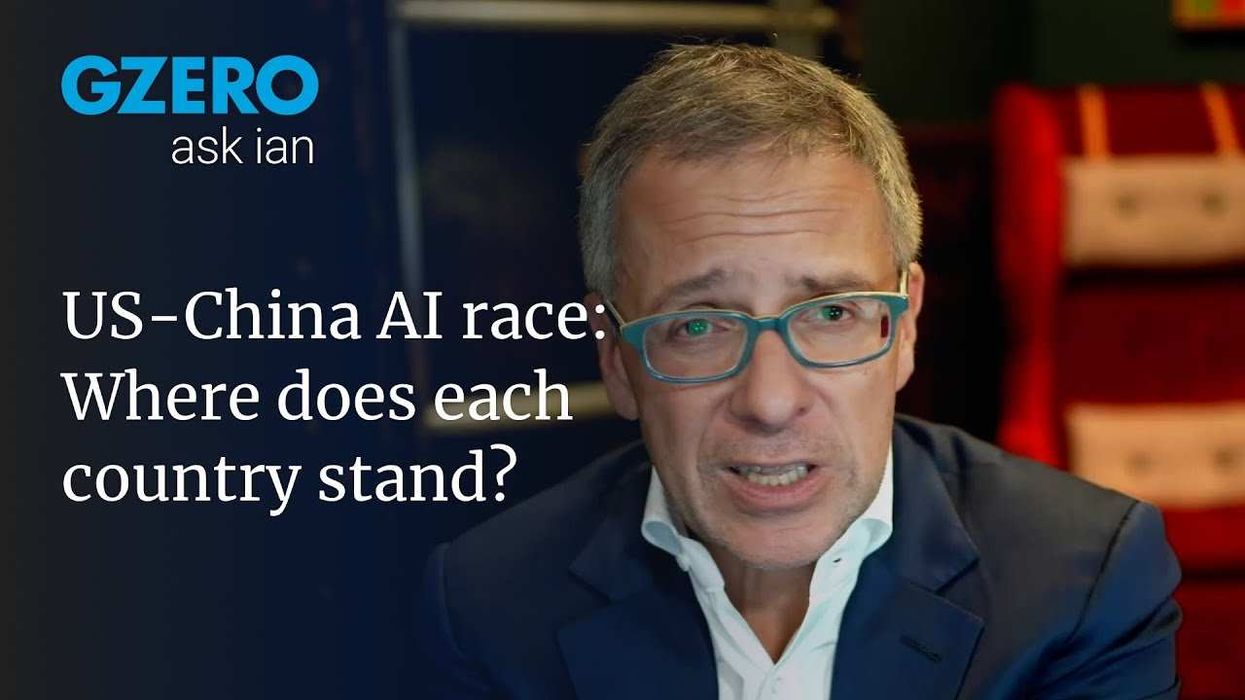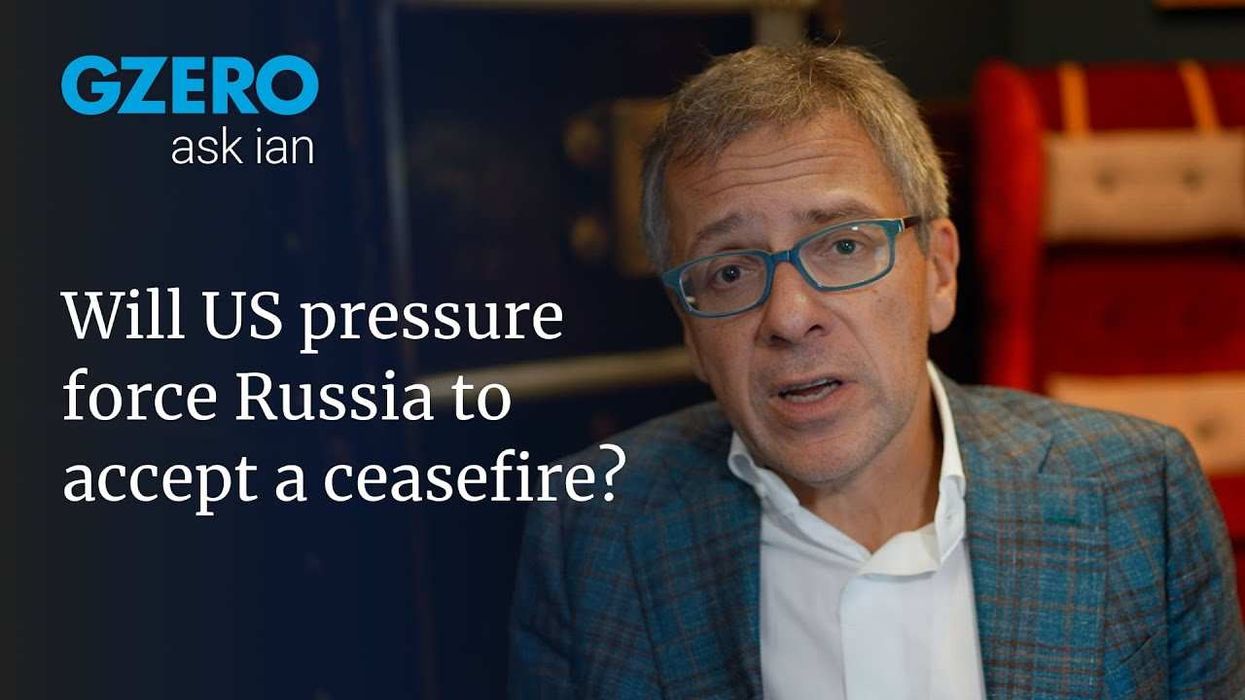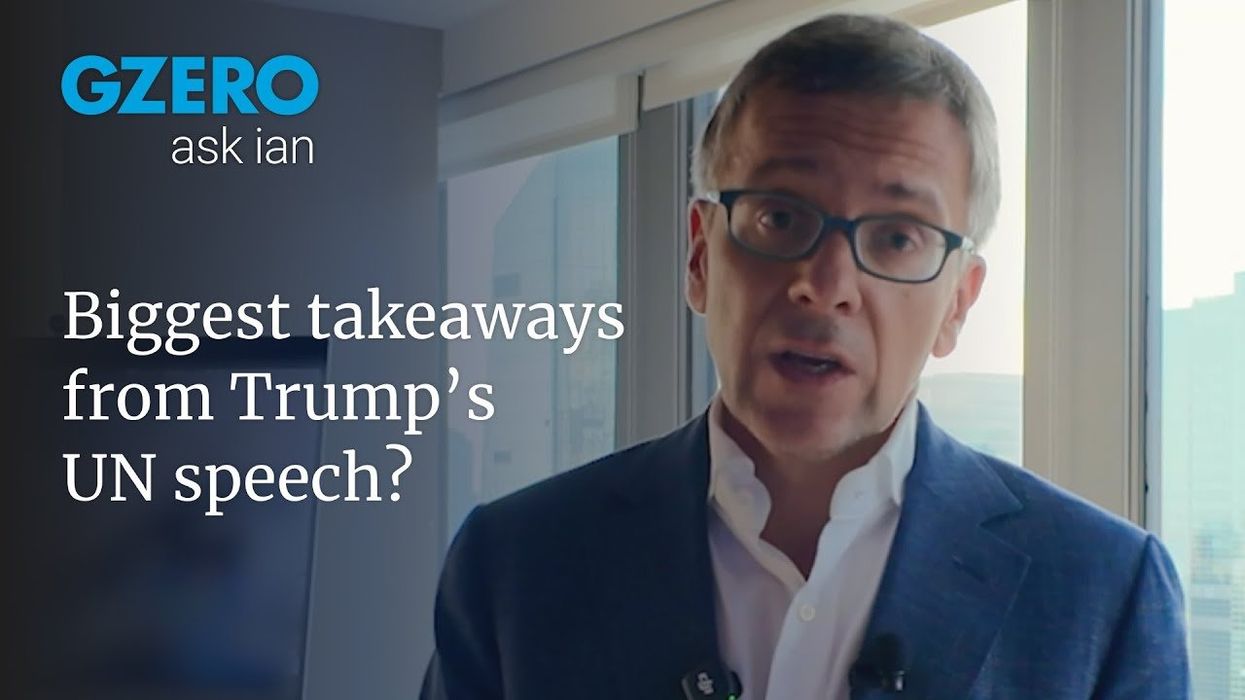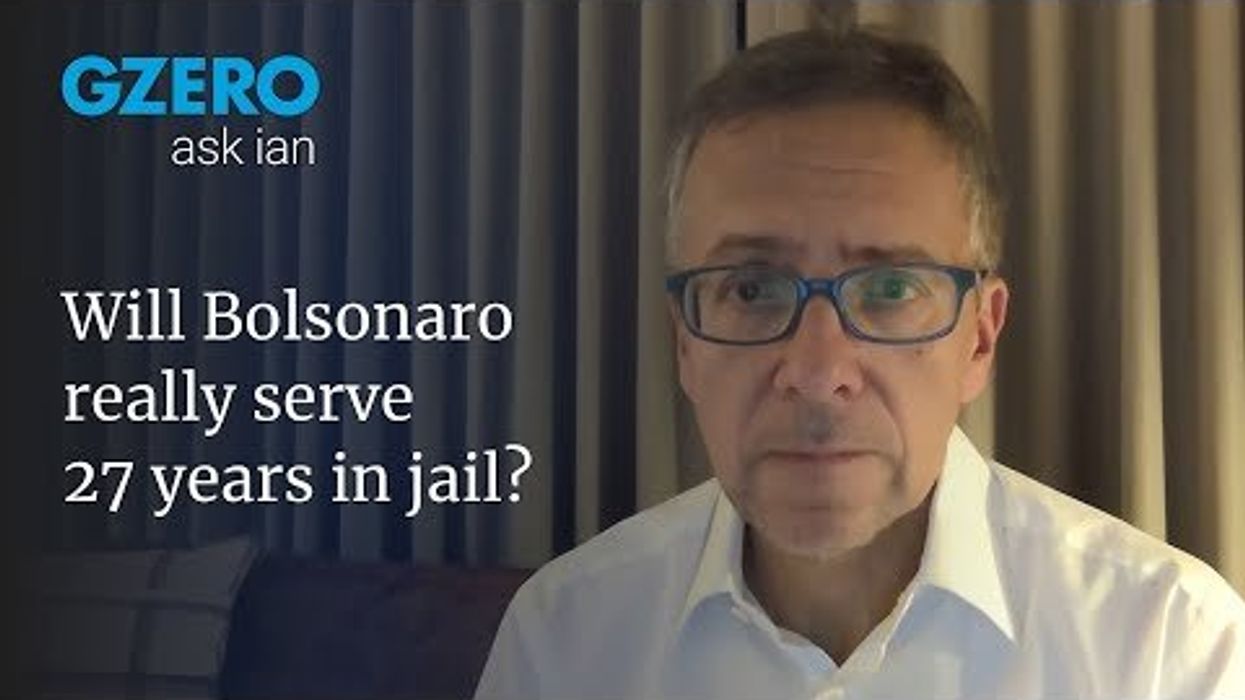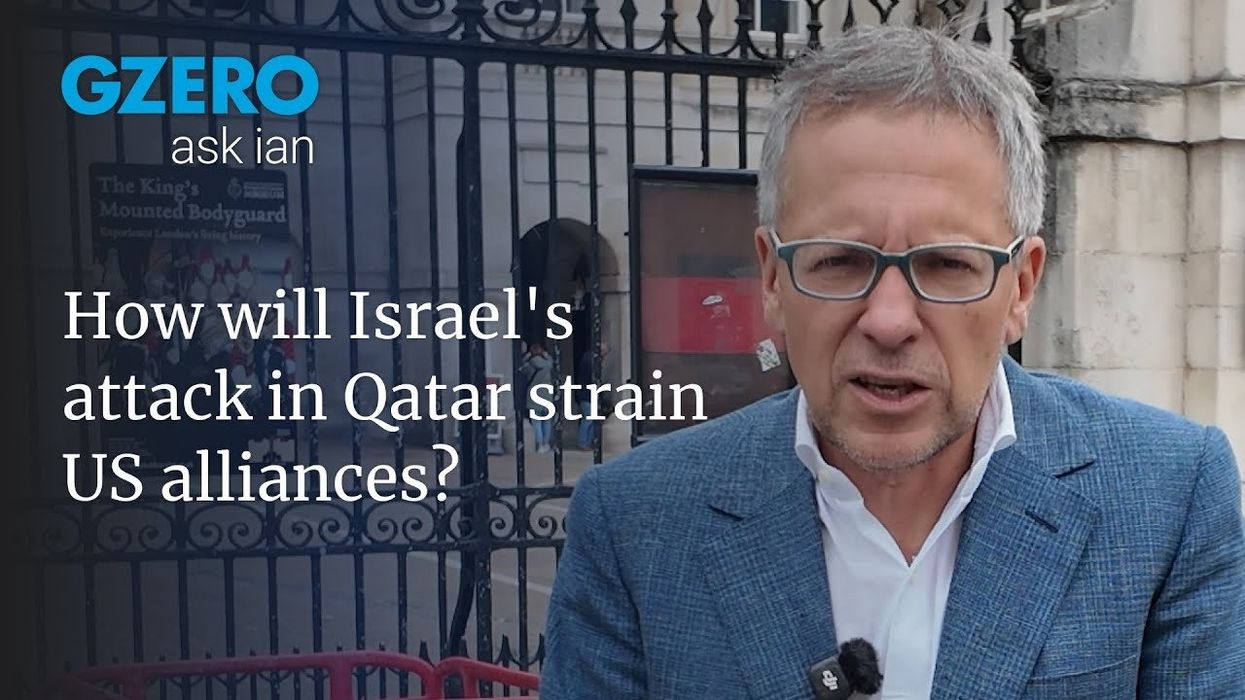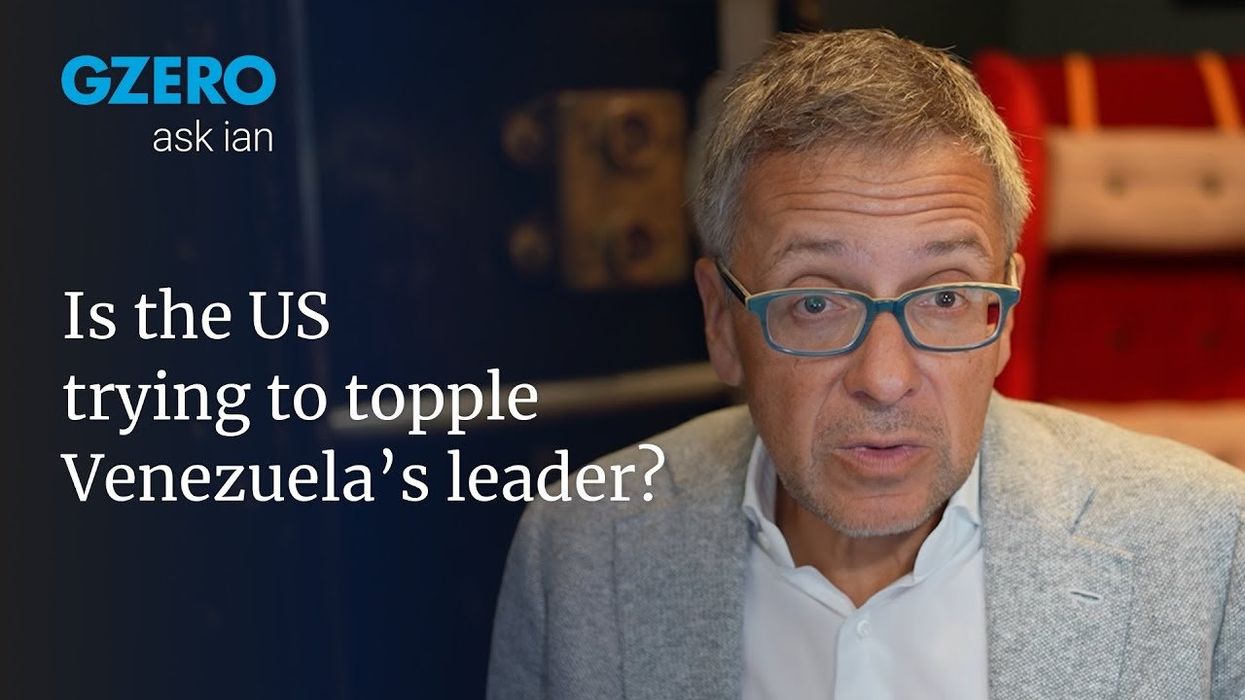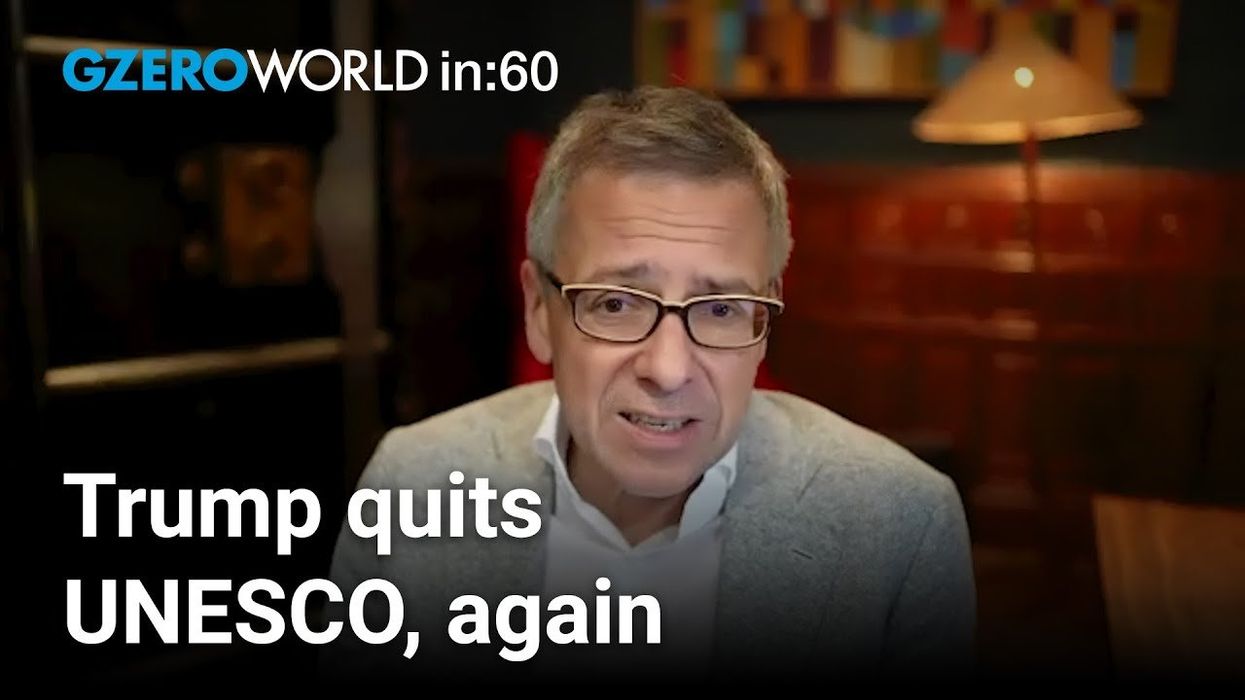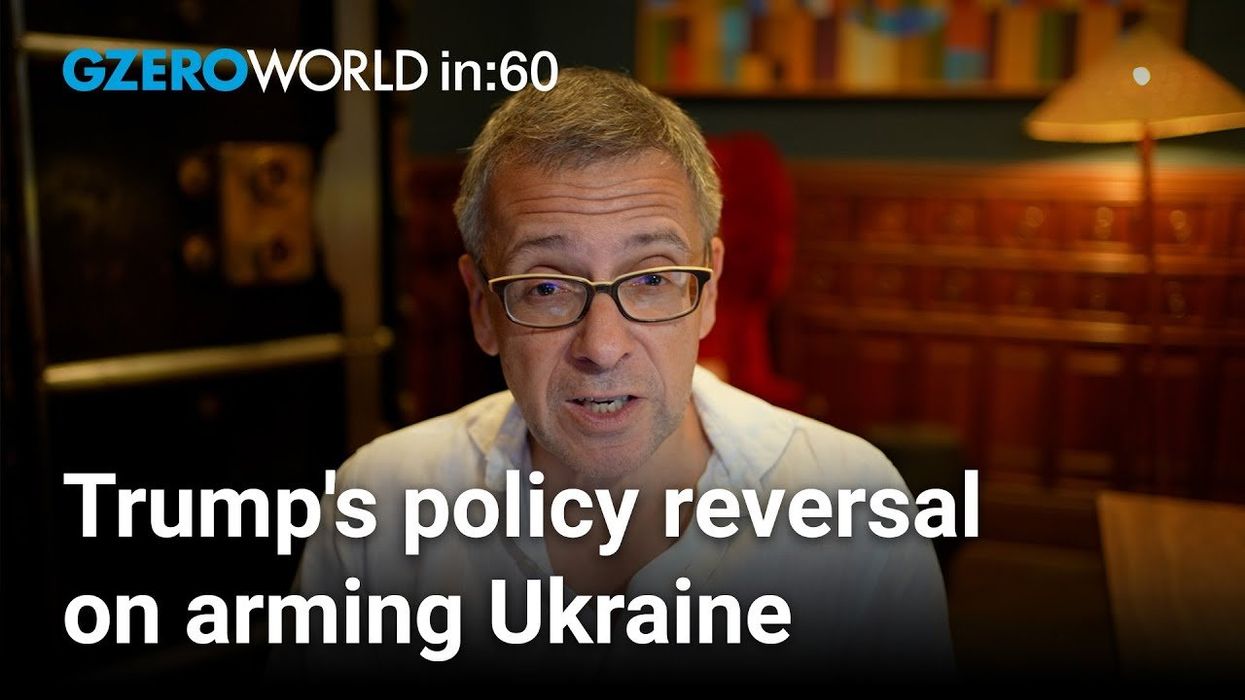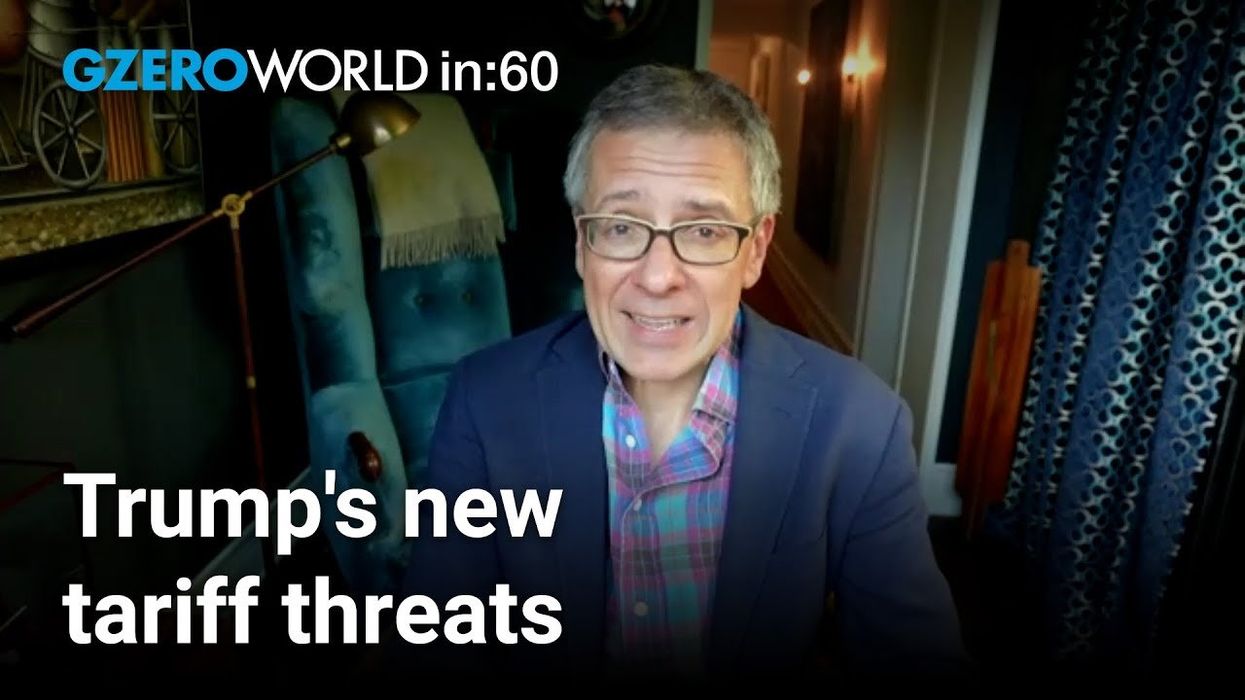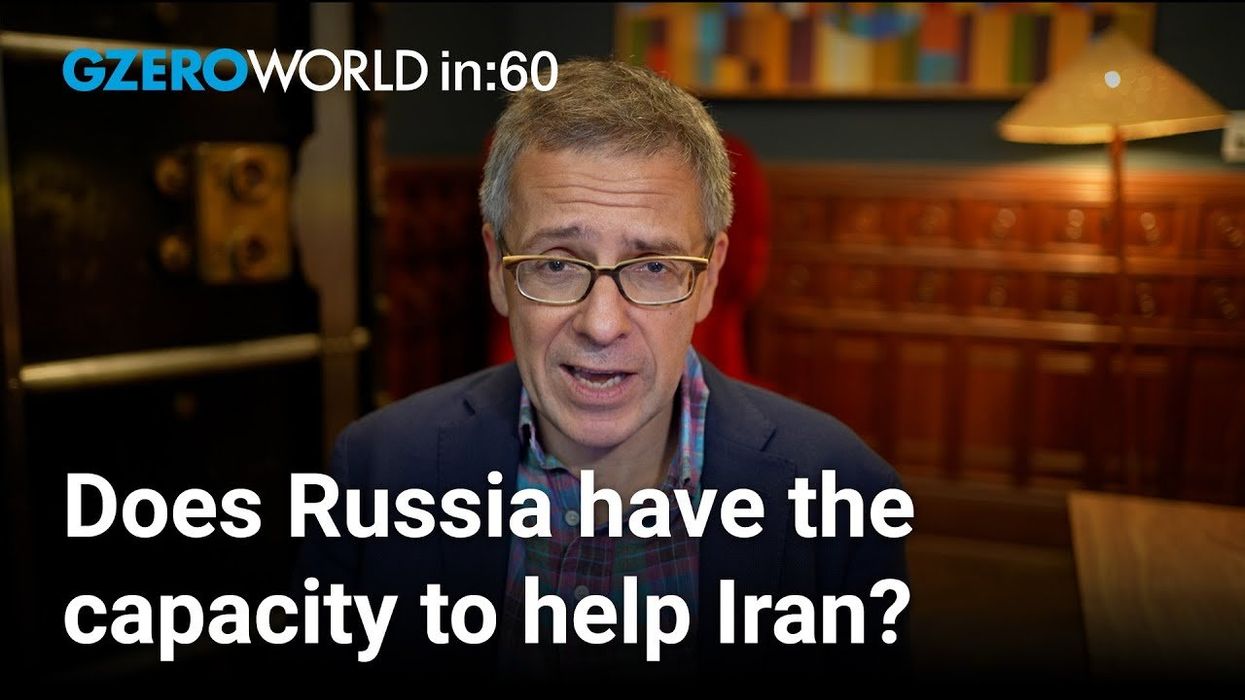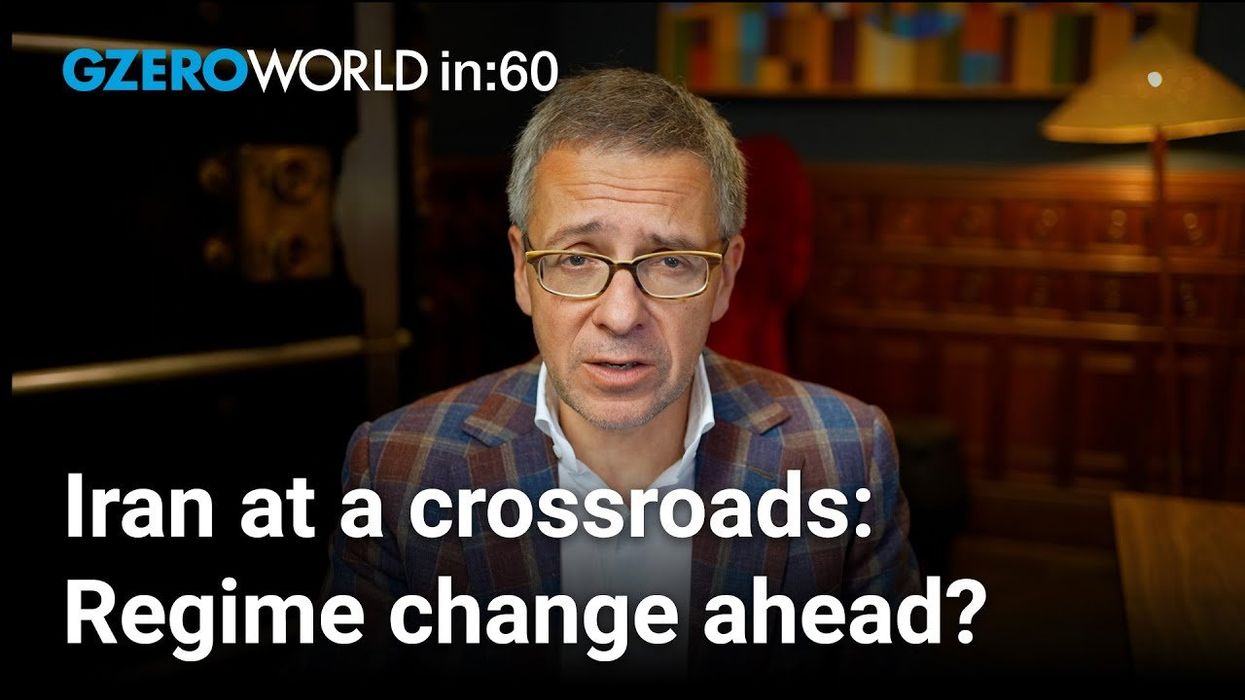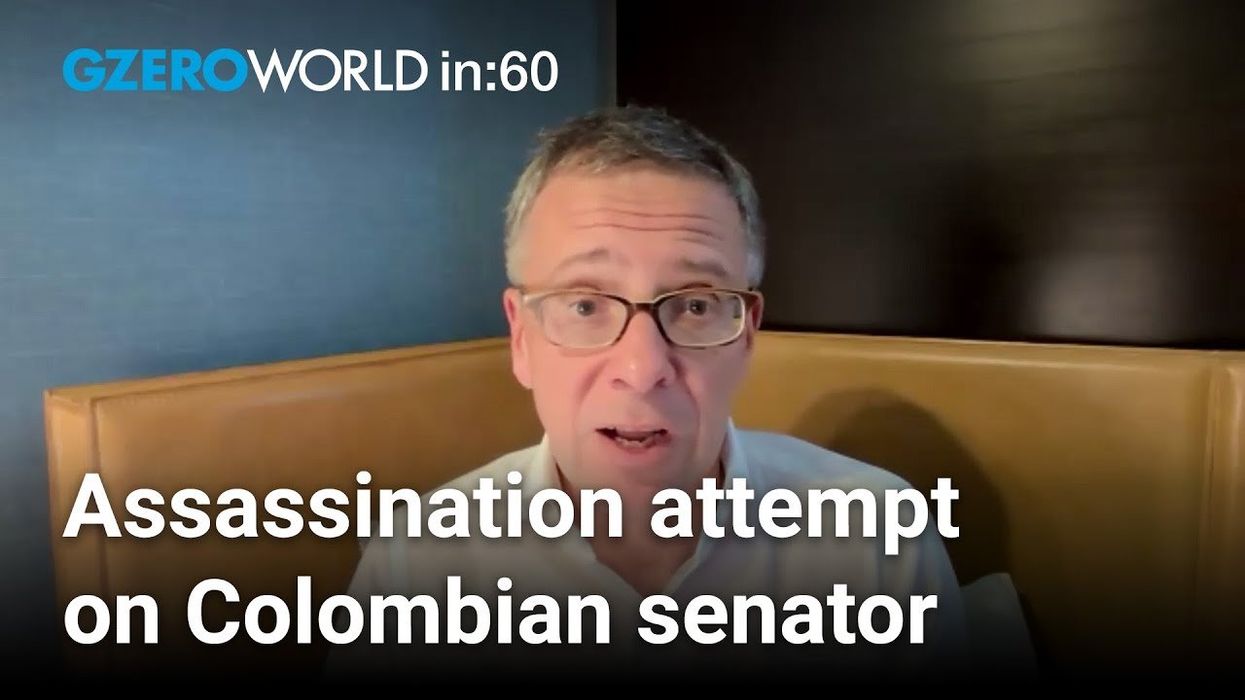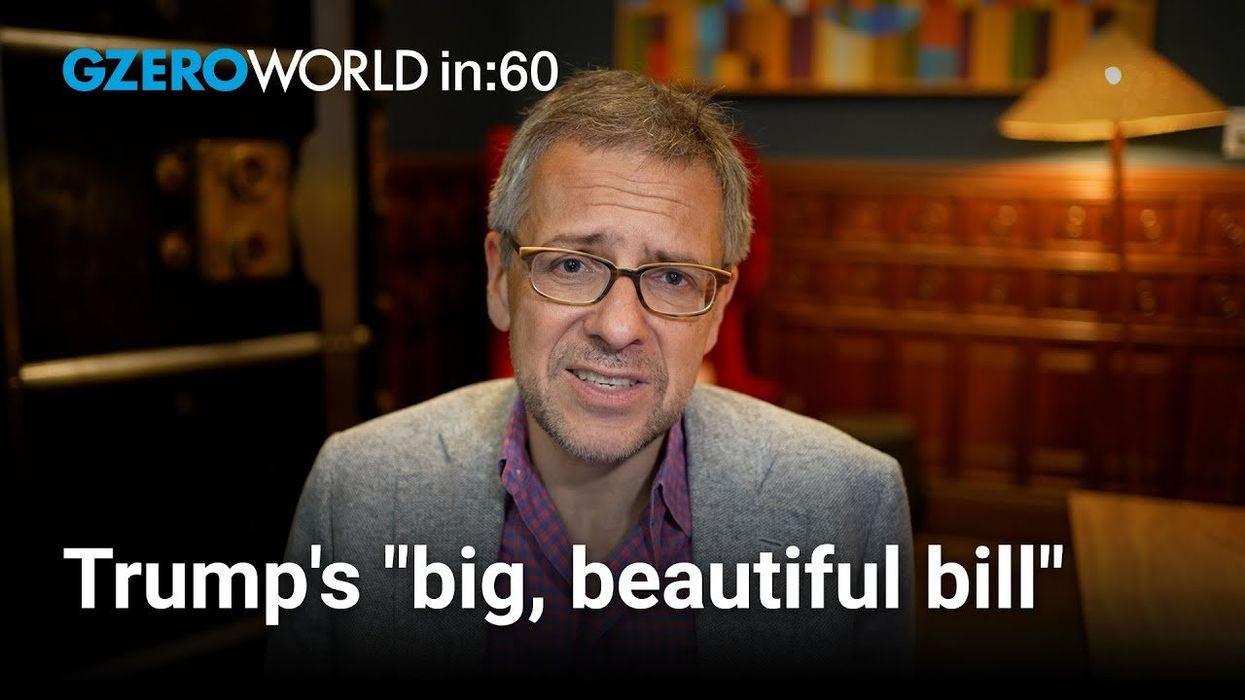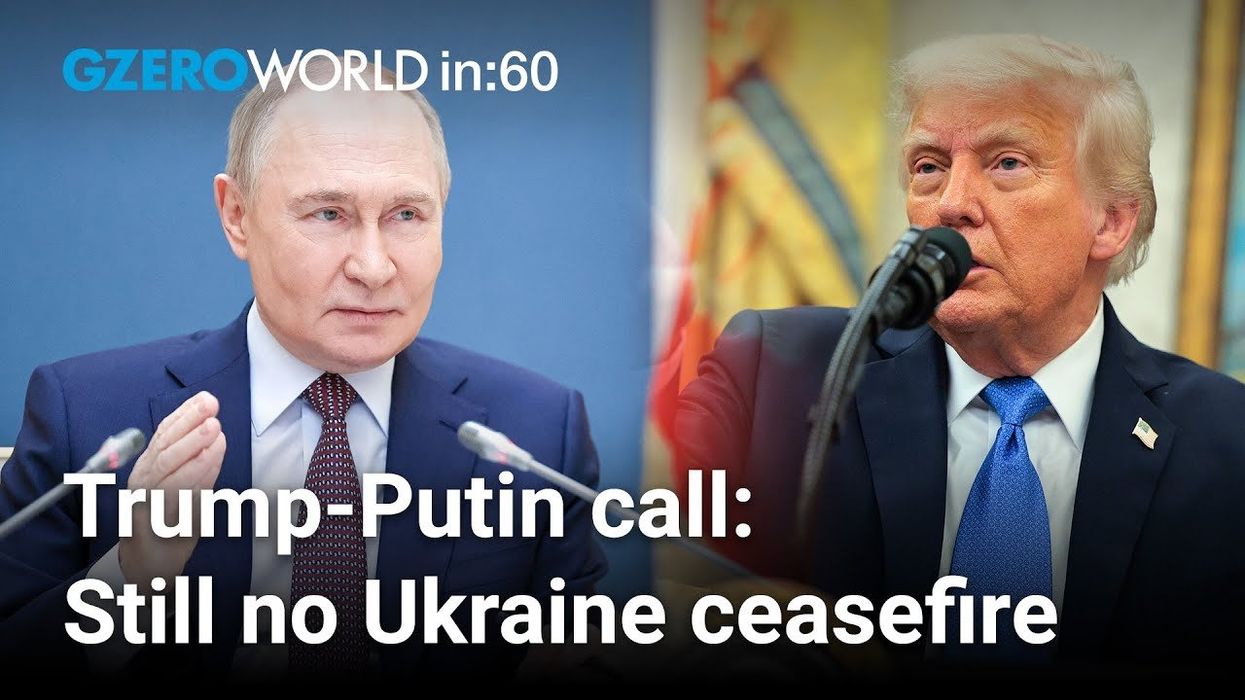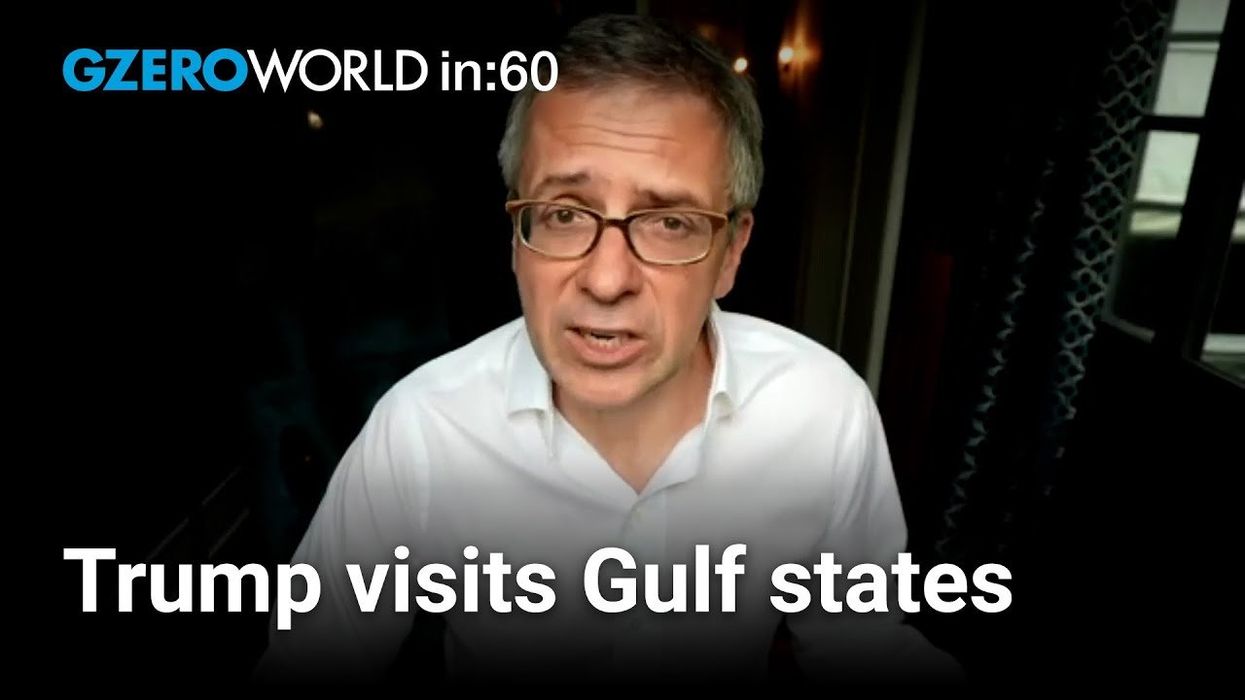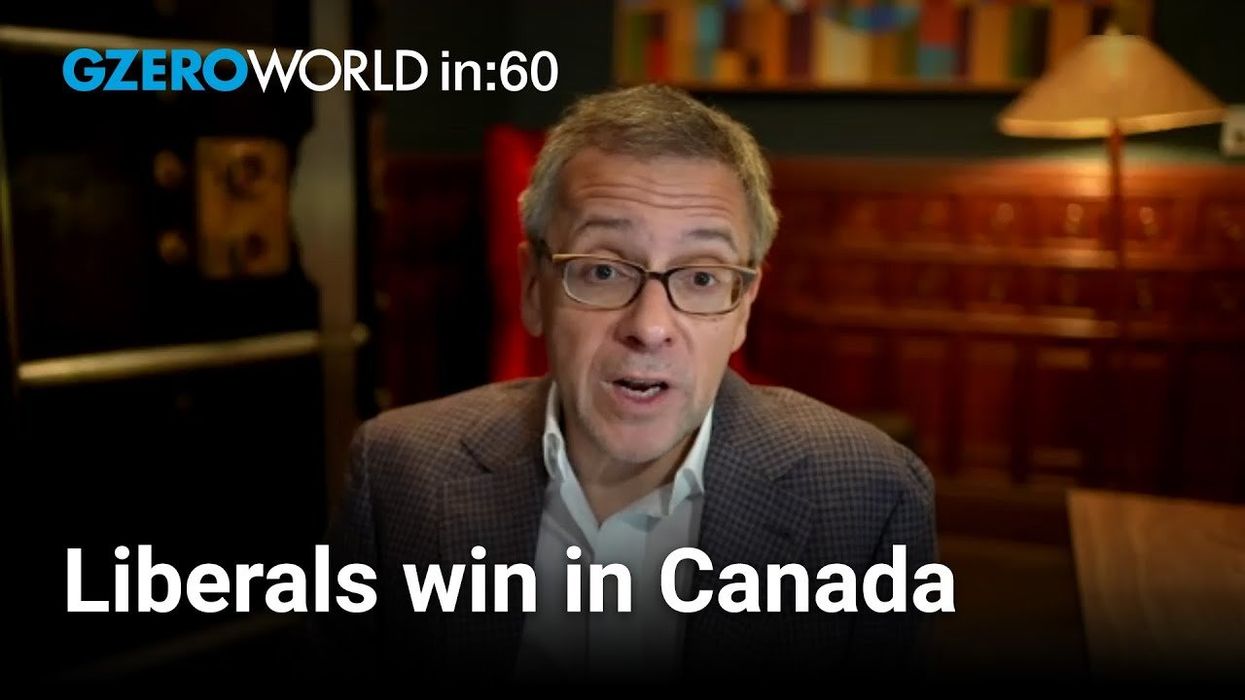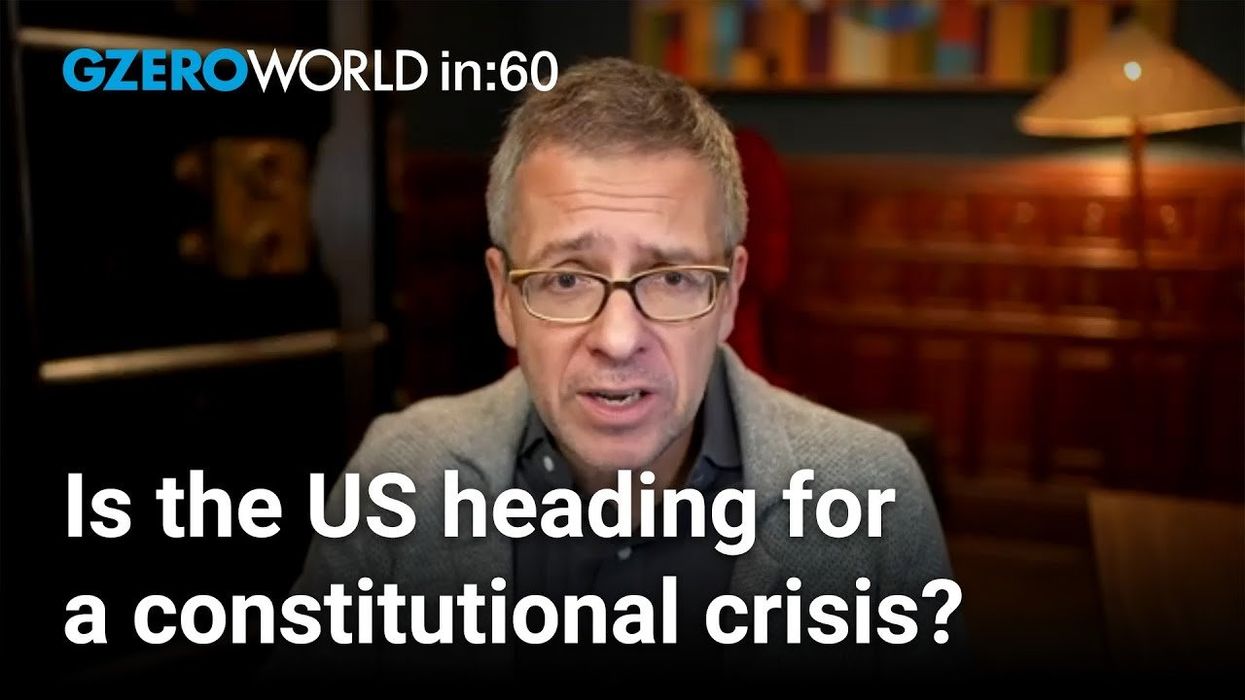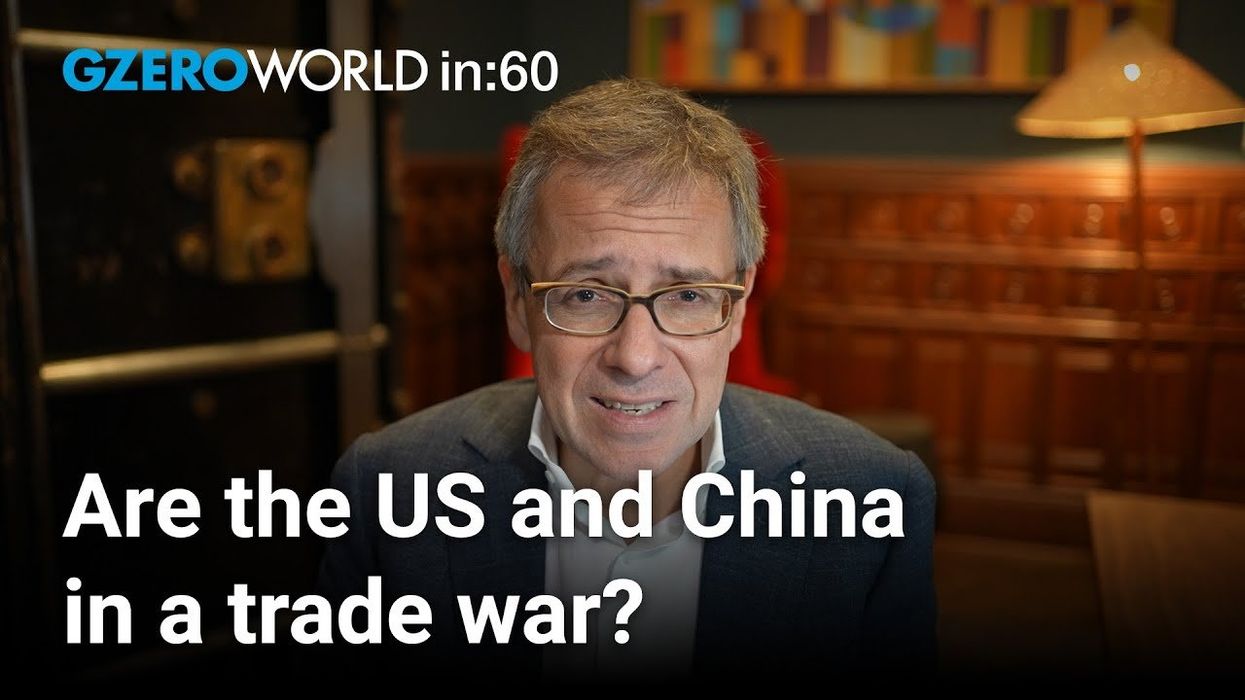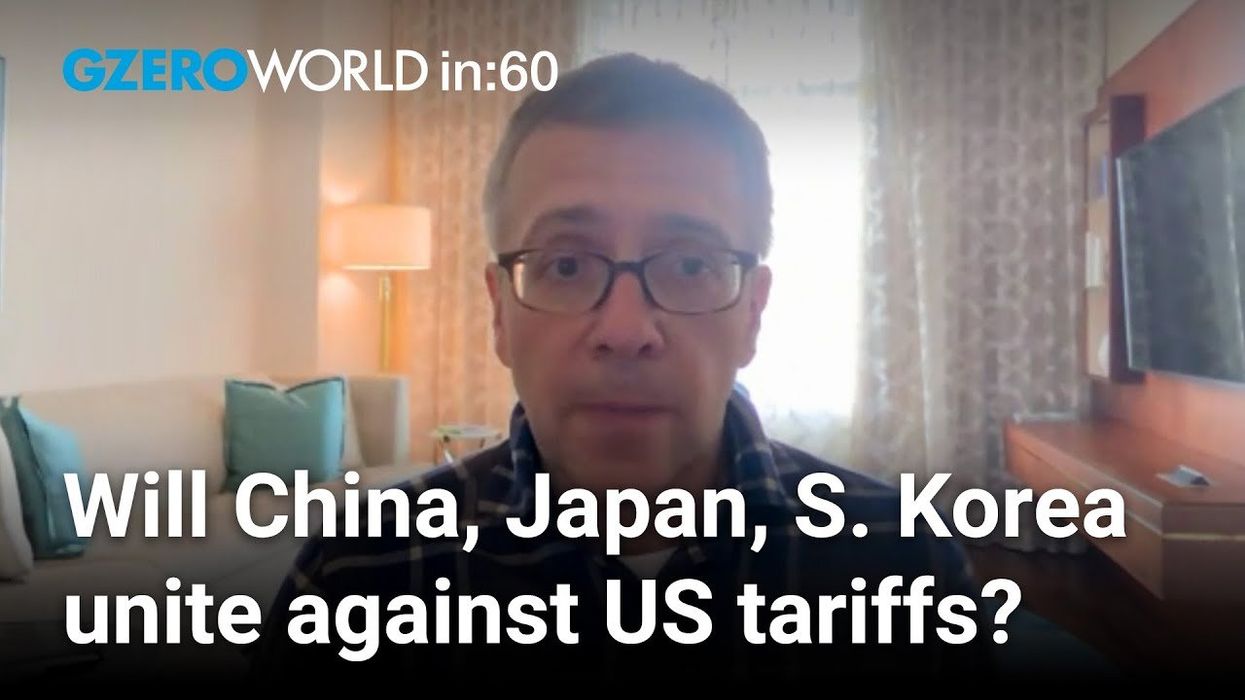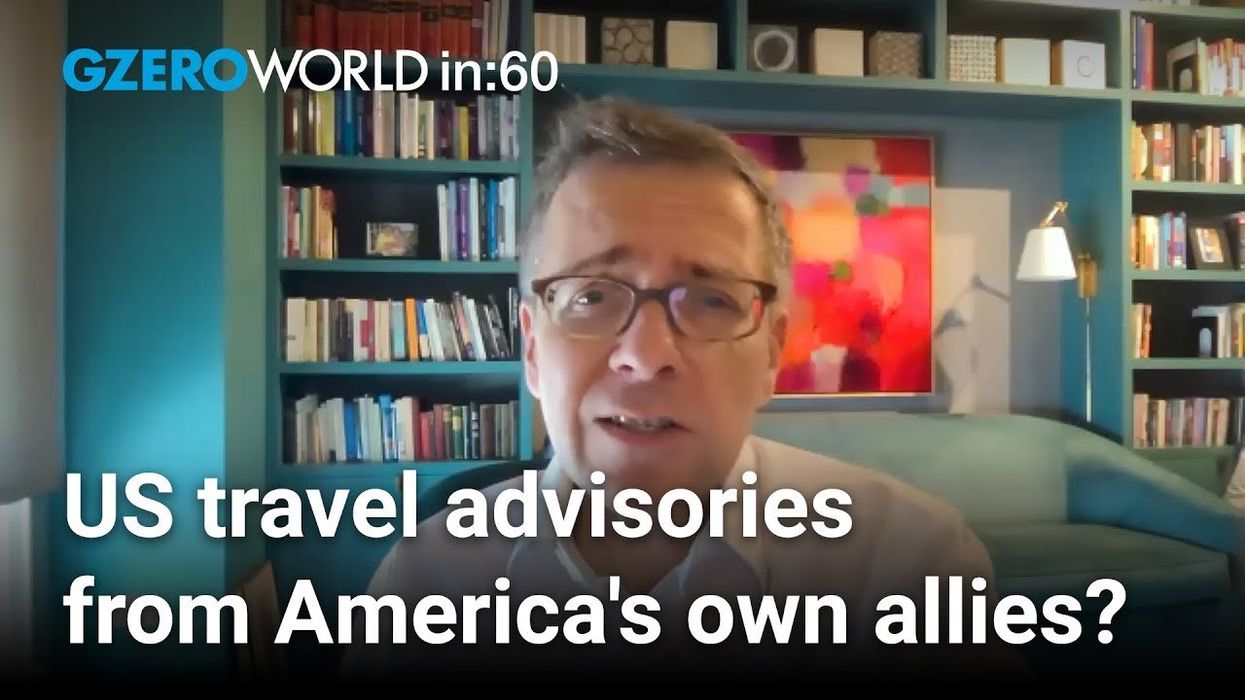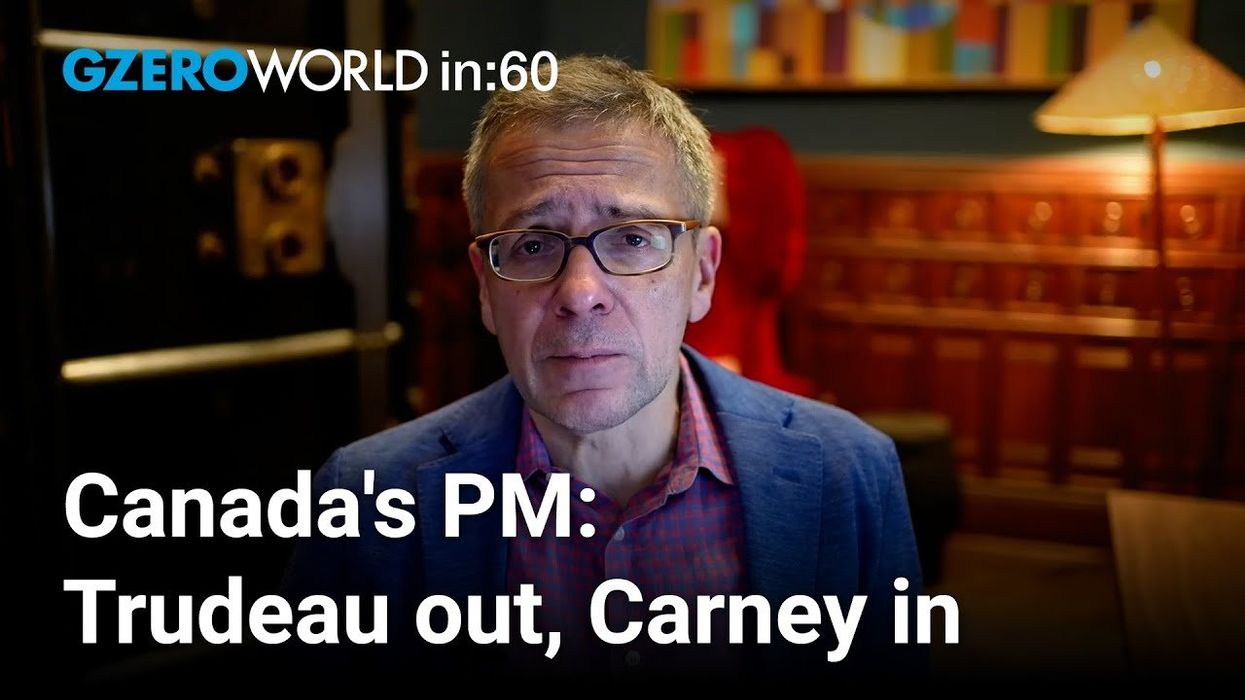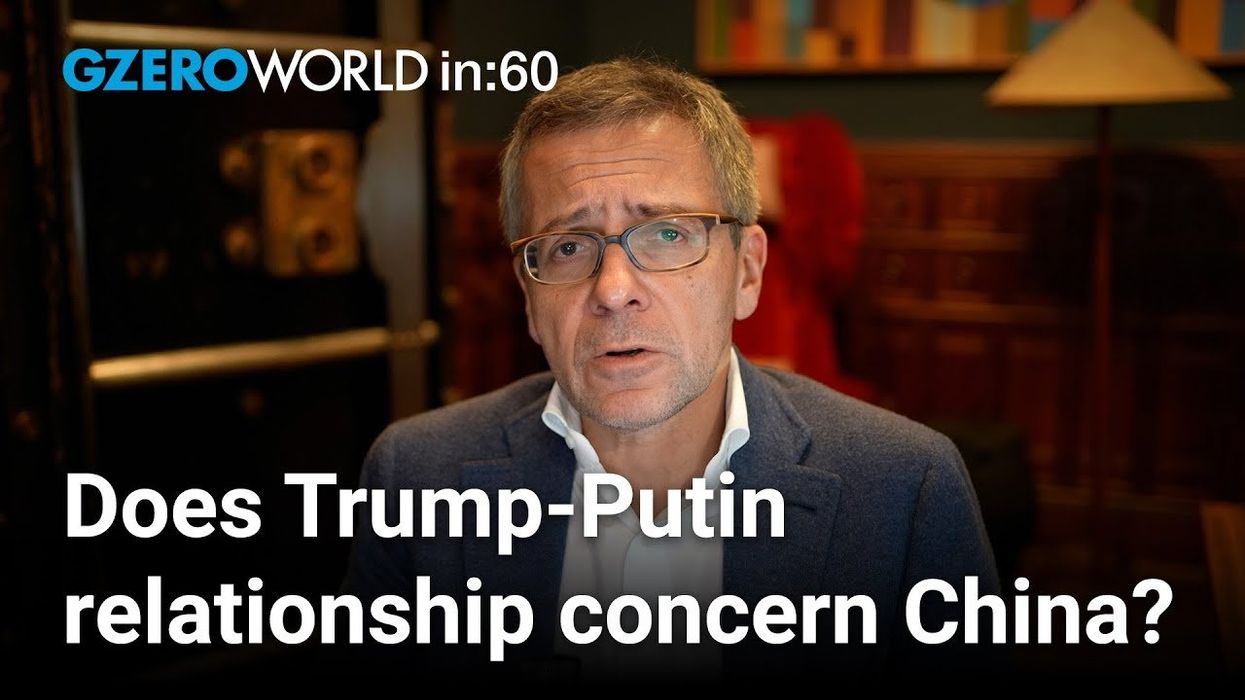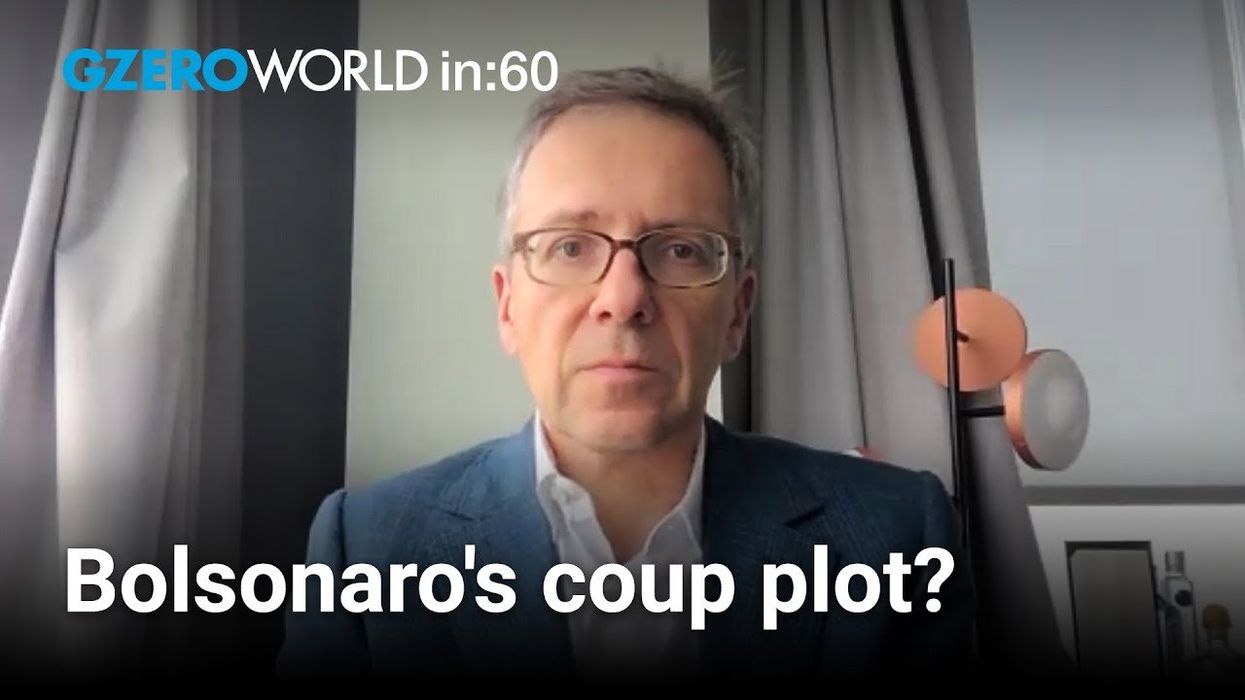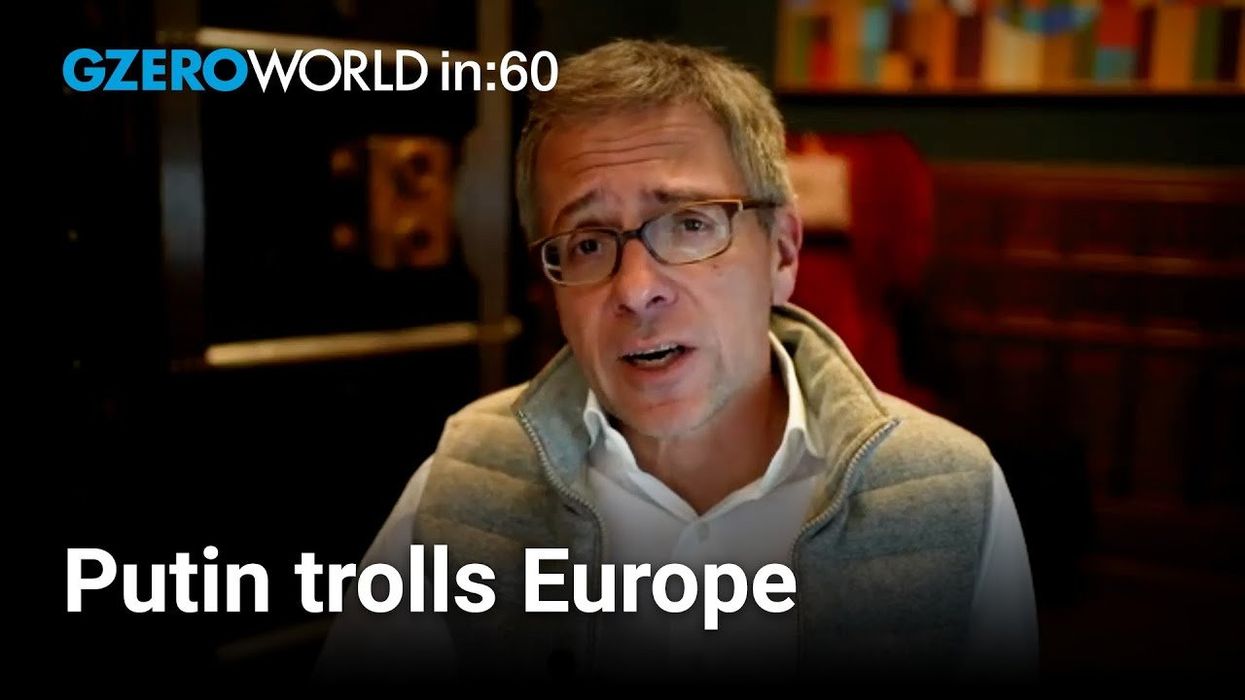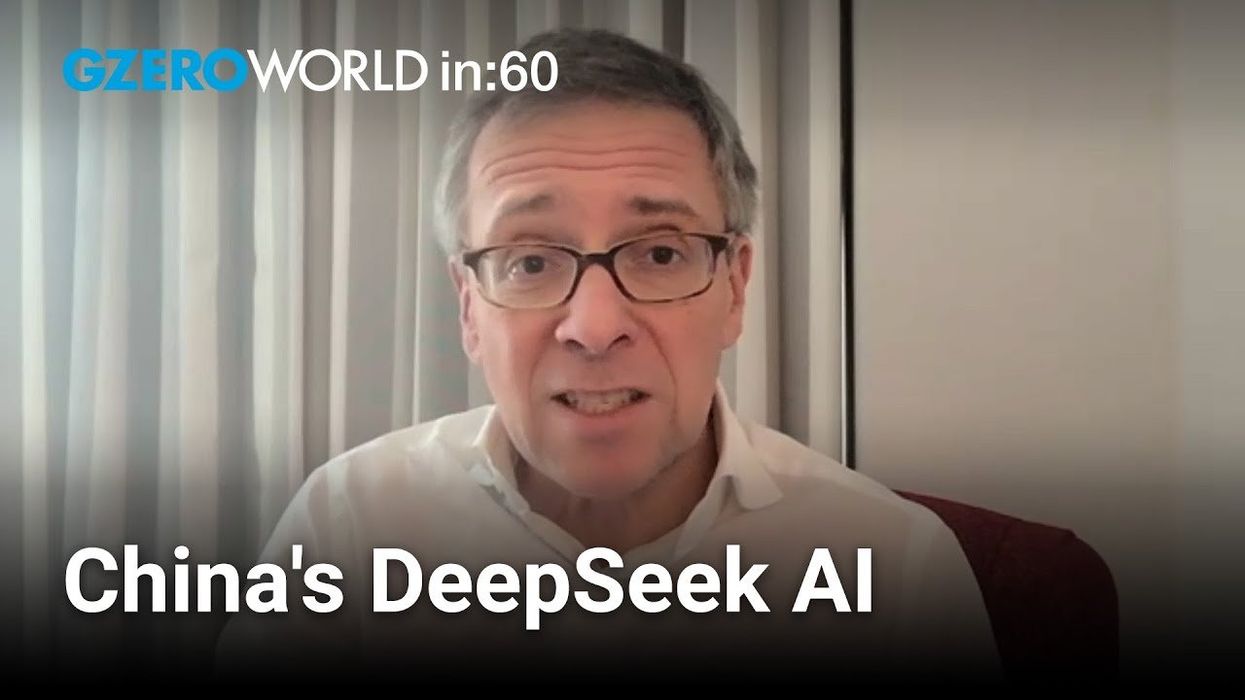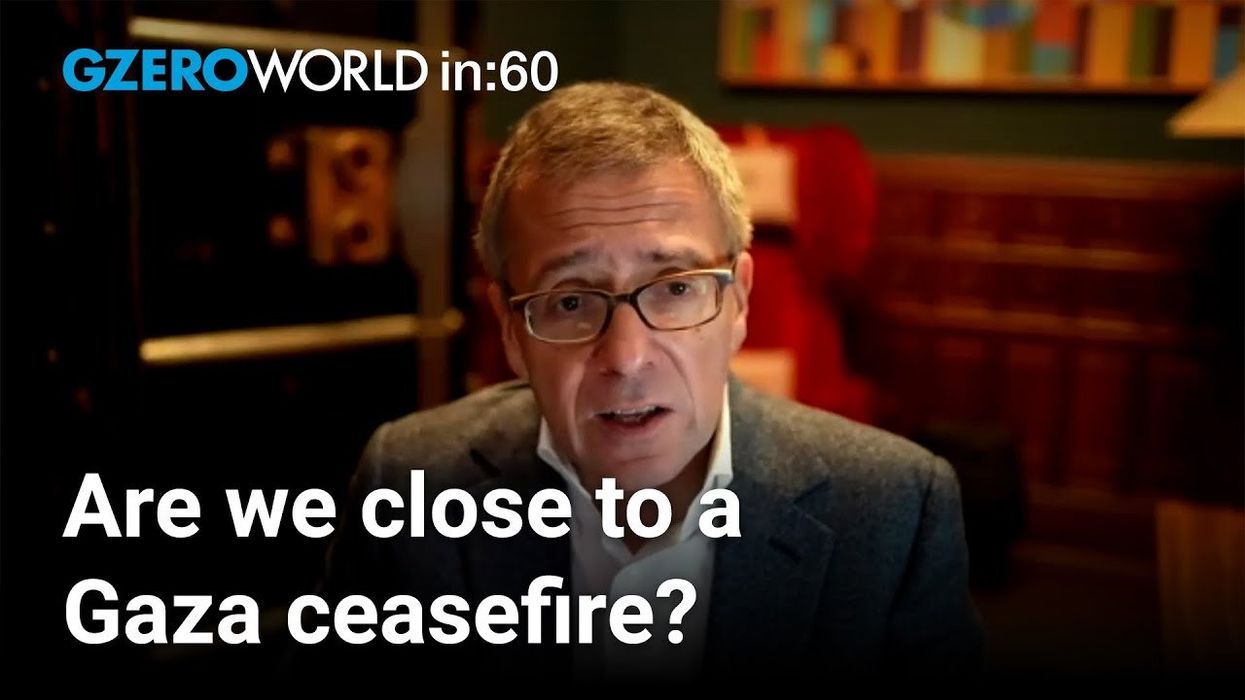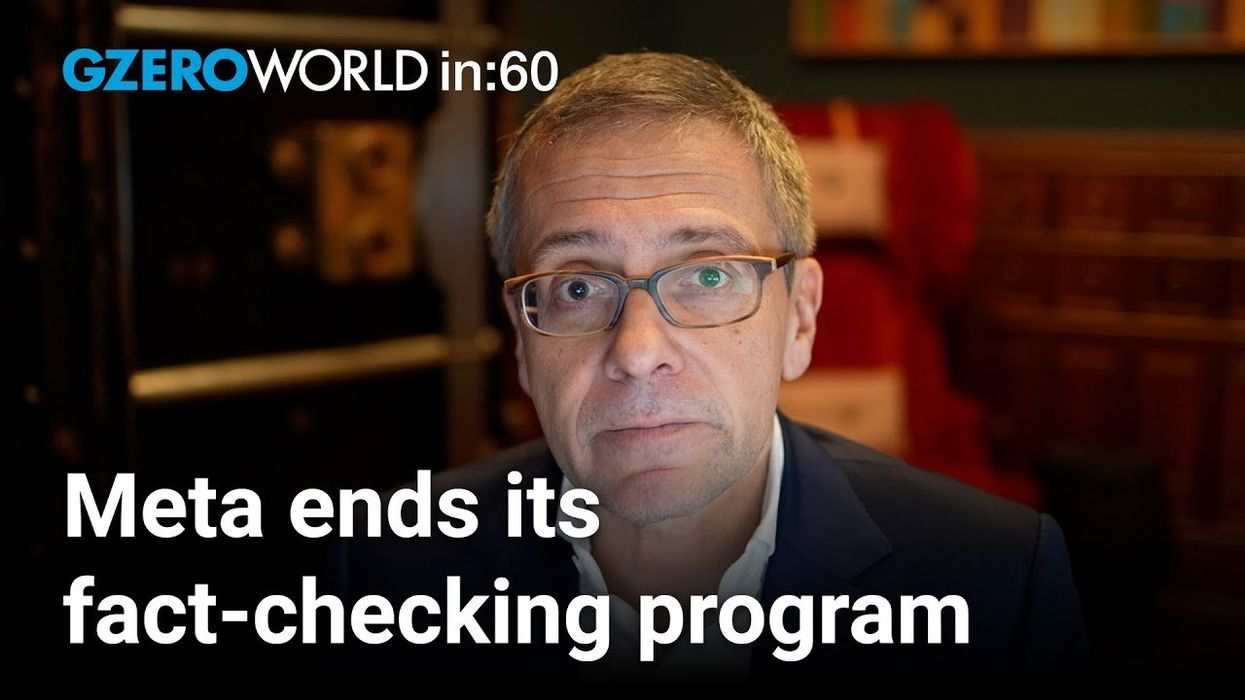VIDEOSGZERO World with Ian BremmerQuick TakePUPPET REGIMEIan ExplainsGZERO ReportsAsk IanGlobal Stage
Site Navigation
Search
Human content,
AI powered search.
Latest Stories
Sign up for GZERO Daily.
Get our latest updates and insights delivered to your inbox.
Global Stage: Live from Munich
WATCH RECORDING
How is the Ukrainian counteroffensive going? Pro-democracy opposition parties swept the Thai elections. Will they be allowed to govern? Is Assad's invitation to COP28 a sign of Syria's return to the global stage? Ian Bremmer shares his insights on global politics this week on World In :60.
How is the Ukrainian counteroffensive going?
Well, it's just started. It's a little premature to ask me that question. Right now you're looking at probing attacks, artillery for the Ukrainians to try to assess where Russian defenses might be weakest so that when Zelensky gives the order for the full counteroffensive, it's starting, but not with masses of troops, that it's most likely to succeed. There is general optimism right now. The Russians are dug in along three lines of defense in southeast Ukraine. There's pretty significant optimism the Ukrainians will be able to break through one, at least maybe two of those lines of defense, which puts them in striking distance of artillery of the coast of the Sea of Azov, which means being able to threaten the land bridge to Crimea. That's a pretty big deal. It improves Ukraine's ability to negotiate if that happens after the counteroffensive is over.
Pro-democracy opposition parties swept the Thai elections. Will they be allowed to govern?
Well, the elections were free. They were fair, but the system structurally advantages the military and the pro-military parties and electors. The military gets to determine basically a large percentage of those people that form a government. What that means is that even with a massive win for the pro-democracy opposition, the possibility that they form a government is pretty much a coin flip. It's about 50-50 right now. The structural disadvantages for pro-democracy forces in Thailand are that great. It's going to be a very hard-fought few weeks and we'll see where it goes, but I would not yet hold my breath that this is a meaningful transition election in Thailand. Still though, there's an opportunity, as there isn't in Turkey, as Erdogan is likely to win, very likely to win is in the second round.
Is Assad's invitation to COP28 a sign of Syria's return to the global stage?
I don't know if I'd say the global stage. Remember this is in the Emirates. It's Abu Dhabi. There has been a re-engagement of the Gulf States with Syria's Bashar al-Assad. That does not change the way the United States is feeling about Assad, or most of the Europeans for that matter. But despite the red line and the whole, "Assad must go," that President Obama once said, and Obama's well gone, Assad is still there and Assad is now increasingly someone that you engage with internationally. It is harder to say no to rogue states when other countries are prepared to deal. Hey, Venezuela is now pumping more oil and Chevron's licenses have been re-approved. Any other gas exploration is now happening. Same Maduro, but the United States with the war in Russia going on and with Ukraine is saying, "Hey, we need to work with these guys." Basically what we're seeing is that more and more tolerance for countries and rogues that act in despicable impunity, but nonetheless, less capacity, less willingness of the world to bring them to bear, and Assad is a piece of that.
Keep reading...Show less
More from ask ian
Trump–Zelensky meeting at Mar-a-Lago
December 29, 2025
Is the US heading toward military strikes in Venezuela?
December 22, 2025
Trump, loyalty, and the limits of accountability
December 16, 2025
Notre Dame, politics, and playing by their own rules
December 08, 2025
Trump threatens regime change in Venezuela
December 02, 2025
Is Trump’s trade strategy backfiring abroad?
November 25, 2025
Ian stands in line for a bagel, the internet melts down
November 21, 2025
Could Trump have handled the Epstein issue any worse?
November 17, 2025
Democrats divided over government shutdown deal
November 11, 2025
Zohran Mamdani and America's political future
November 04, 2025
Trump, Xi, and the new US–China standoff
October 14, 2025
US-China AI race: Dueling strategies and potential risks
October 07, 2025
Trump shifts on Russia: From carrots to sticks in Ukraine war
September 30, 2025
Trump’s UN speech: Sovereignty, security, and ending wars
September 23, 2025
Israel attacks and targets Hamas leadership in Qatar
September 10, 2025
US strike on vessel from Venezuela
September 03, 2025
Trump pulls US out of UNESCO, again
July 22, 2025
Trump announces new plan to arm Ukraine
July 15, 2025
Are NATO allies aligned on Iran?
June 24, 2025
Will Iran’s regime survive?
June 18, 2025
Trump-Musk rift over Trump's "big, beautiful bill"
June 04, 2025
What is Trump after in his latest Gulf states tour?
May 13, 2025
Why Mark Carney’s victory won’t heal the US-Canada rift
April 29, 2025
Trump tariff is starting a US-China trade war
April 08, 2025
What if Japan & South Korea sided with China on US tariffs?
April 01, 2025
US travel warnings issued by its closest allies
March 25, 2025
US-Canada trade war helps Mark Carney's election prospects
March 11, 2025
Why Trump won’t break the Putin-Xi alliance
March 04, 2025
Will Trump & Musk punish Brazil over Bolsonaro indictment?
February 19, 2025
Putin trolls Europe about "the master" Trump
February 04, 2025
DeepSeek puts US-China relations on edge
January 30, 2025
Gaza ceasefire likely as Biden and Trump both push
January 14, 2025
Meta scraps fact-checking program: What next?
January 07, 2025
GZERO Series
GZERO Daily: our free newsletter about global politics
Keep up with what’s going on around the world - and why it matters.

